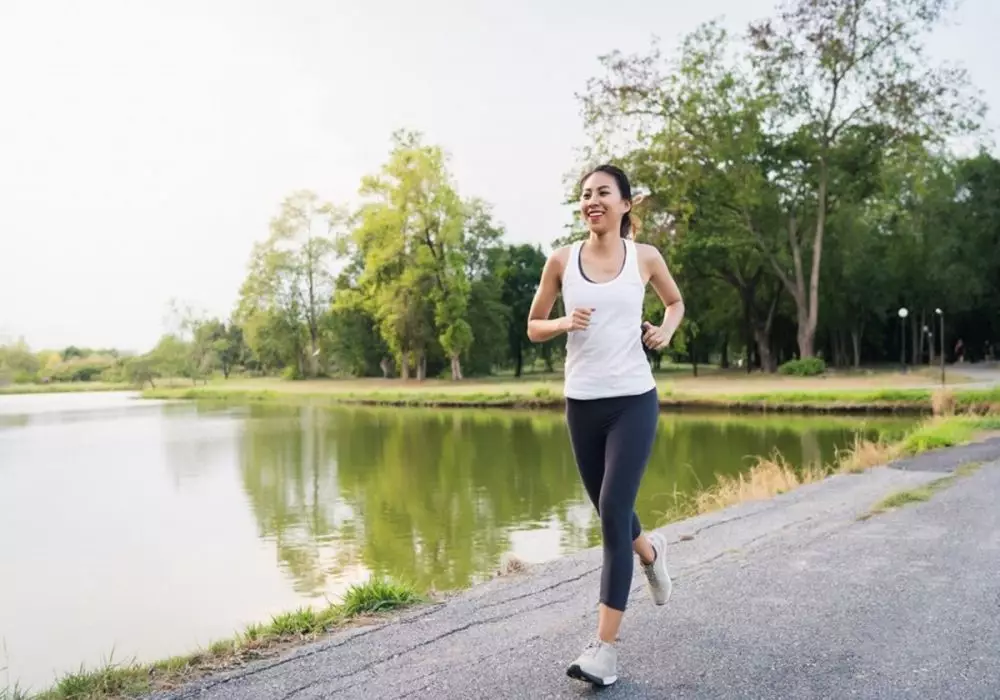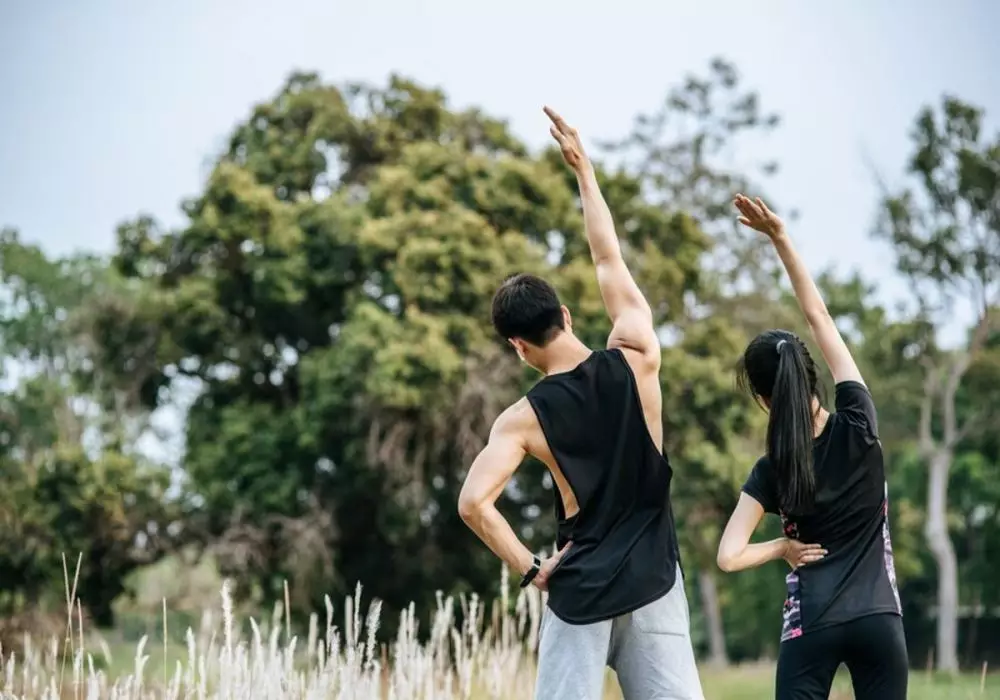foto: freepik.com
Brilio.net - Sport is an important activity in everyday life. The reason is, through exercise the body becomes healthier and is one way to prevent deadly diseases, such as heart disease.
According to data from Basic Health Research (Riskesdas) in 2018, 15 out of 1000 people in Indonesia, or around 2,784,064 individuals suffer from heart disease. So, to minimize heart disease there are several preventative steps, one of which is doing cardio exercise regularly.
Cardio exercise is a type of physical activity that has a multitude of benefits for the body, such as helping to improve heart and lung health, improving body function, and maintaining blood pressure.
It's not difficult to do cardio exercise, you can follow the easy and effective cardio exercise guide for beginners, reported by brilio.net from various sources on Friday (31/5).
What is cardio exercise?

photo: freepik.com
Cardio exercise, also known as aerobic exercise, is a type of physical activity that increases heart rate and trains respiratory performance for a long time. This exercise is generally done for a minimum of 30 minutes per day, 5 days a week.
Cardio exercise has several benefits, such as:
1. Cardio exercise strengthens the heart muscle, improves blood circulation, and increases lung capacity.
2. Cardio exercise is also known as an activity that burns more calories than other types of exercise, thereby helping you achieve your ideal body weight .
3. Reduces the risk of chronic diseases such as heart disease, stroke, type 2 diabetes and several types of cancer.
4. Not infrequently, cardio exercise also helps improve mood, reduce stress, anxiety, and improve sleep quality.
5. What is no less important, cardio also helps strengthen bones and muscles.
Cardio training guide for beginnersFor those of you who are just starting a healthy lifestyle with regular exercise, it is important to know the cardio training guide for beginners. The reason is, if you do cardio inappropriately, it can cause injury to the body.
Apart from that, the body is also not ready to accept new activities that immediately drain energy. Therefore, it is important to introduce cardio stages for beginners which include warm-up movements, types of cardio movements, and cooling down after cardio training.
Warm up movements before cardio exercise.

photo: freepik.com
Before doing cardio exercise, you should warm up first so that your muscles are more relaxed before exercising and avoid injury when doing cardio. Simple warm-up tips that you can do include:
1. Walk in place for 3 minutes, then swing your arms while walking forward and backward alternately for 3 minutes.
2. Make a fist and stretch it forward, then step your right foot forward with your heel as support for a few seconds. Do this movement alternately with the left leg. Repeat the movement 30 times.
3. In an upright standing position, lift your right knee until it forms a 90 angle and touch the knee with the palm of your left hand. Do the same thing alternately with the left knee and repeat 20 times for 30 seconds.
4. While walking in place, alternately roll your shoulders forward and back, 5 times each.
5. Last step, stand straight with your feet slightly apart and your arms straight in front of you. Bend your knees and stand up. Repeat this movement 10 times.
Types of cardio exercises and movements

photo: freepik.com
Actually, there are various cardio exercises that you can do at home, such as:
1. Jumping jacks.
Jumping jacks are a cardio exercise that involves jumping and moving the whole body, providing a thorough workout that strengthens muscles throughout the body. Here are the steps to do jumping jacks:
- Stand with your feet shoulder-width apart
- Jump and spread your legs wider than your shoulders
- At the same time, raise both hands above your head as if to clap
- Do this movement 10 times per set and repeat 2-5 sets.
2. Squat jumps.
Squat jumps are useful for strengthening the abdominal muscles, buttocks, hips, legs and thighs, so that the body becomes more agile. How to do squat jumps:
- Stand straight with your feet shoulder-width apart
- Bend your knees until they form a 90 degree angle
- Push your buttocks back as if you are going to sit down and make sure your back remains straight
- Jump by pushing off the floor with your feet and landing in a squatting position
- Repeat this movement 6-12 times per set and do 2-4 sets.
3. Burpees.
Apart from jumping jacks, burpees are also a full-body workout because they involve many body muscles, from the legs, buttocks, stomach, arms, chest and shoulders. Here's how to do burpees:
- Stand straight with your feet shoulder-width apart
- Lower your body into a squat position with both hands touching the floor
- Kick your legs back until your body is in a push up position
- Jump forward like a frog until you return to a squatting position
- Stand straight and jump with both hands reaching above your head quickly
- Land in a squat position, return to the squat position, and repeat the series of movements 10 times in 1-2 sets.
4. Plyo lunges.
This exercise is effective for increasing muscle strength, explosive power, and stability, especially in the leg muscles and glutes. The method:
- Stand with your right foot in front and left foot behind.
- Bend your knees and place your hands on your waist.
- Jump and land by changing the position of the feet so that the left foot is in front and the right foot is behind.
- Repeat this movement in 1-3 sets with 60 seconds each set.
If you are just starting out, you can do various movements for a short duration of around 10 to 15 minutes. When you are comfortable and used to it, you can increase the duration of cardio exercise gradually.
Cool down moves after cardio training.

photo: freepik.com
Don't forget that after doing cardio exercise, you need to do cool-down movements to gradually relax your body. The goal is to get blood flow and the heart to work normally again, here are some cooling movements you can do:
1. Head and neck stretch.
- Lower your head until your chin touches your chest.
- Tilt your head to the left until the right side of your neck feels tense or tight, and hold for 3060 seconds.
- Repeat the movement by tilting your head to the right.
2. Stretching the chest and shoulder muscles.
- Stand straight and link your hands behind your back near your spine.
- Straighten your arms and rotate your hands, so that your palms face down.
- Raise your arms as high as possible until you feel a pull in your arm and shoulder muscles.
- Hold the position for 3040 seconds and repeat 23 times..
3. Stretching the buttocks and hip muscles.
- Arrange a lying position, then raise your knees until they form a 90 degree angle.
- Place your left foot on your right knee then hold the knee with both hands.
- Bring your right knee towards your face for 30 seconds until you feel a pull on your left hip.
- Repeat these steps on the opposite side.
(brl/mal)